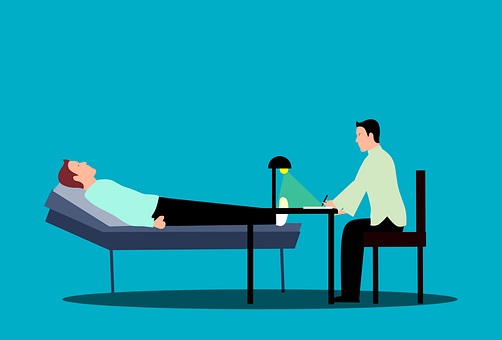If you’re struggling with mental health issues, you may have decided to try psychotherapy. But what if your friends and family have some strange ideas about this type of therapy? You may wonder if what they say is true. There are many misunderstandings about psychotherapy. Let’s debunk the harmful but common myths people believe about attending these therapeutic sessions.
What is psychotherapy?
You may be interested in getting help to manage your anxiety or personal life. Perhaps you struggle with mental health issues and have finally taken the step to go to psychotherapy. Psychotherapy is often called talk therapy. It helps people with difficult mental illnesses or emotional problems so they can function better and find healing.
There are different types of psychotherapy, and some may work better than others for people. The premise of psychotherapy is to help the person be comfortable enough to open up and talk about their life. The sessions can include one person, a couple, or an entire family group depending upon the needs.
The sessions aren’t long, usually 15 to 30 minutes. Psychotherapy may be short term or long term, sometimes years if the person needs this length of time.
What’s the difference between psychotherapy and counseling?
Many people use the terms psychotherapy and counseling interchangeably, but they have several important differences, although these two are similar.
- Counseling: Counseling is generally is used for one specific issue you’re struggling with, such as grief or addiction. It can last for weeks or months. In counseling, the goal is to get you involved in solving your problems. The counselor may give you advice say on spiritual matters or your finances.
- Psychotherapy: This therapy explores your past to help you understand and get help to resolve your present-day struggles. Psychotherapy usually lasts longer than counseling, maybe for years, depending on your needs. It focuses more on your thought processes and how they affected you in the past and the present.
13 Myths about psychotherapy that aren’t true

Here are common misconceptions people have about attending therapeutic sessions.
Myth #1 – Psychotherapy is weird
Television and movies often depict psychotherapy in a negative light. Studies show that these negative portrayals have changed the public’s attitude about psychotherapy and therapists. These wrong impressions influence people to avoid getting this help.
Myth #2 – Psychotherapists always blame a client’s problem on their upbringing
This is a common misconception about psychotherapy. But in truth, your psychotherapist won’t blame you, your parents, or your upbringing for your current problems. Their goal is to help you get a bird’s eye view of your life and take responsibility where needed. They work hard to be objective and not blame shift anyone.
Myth #3 – Psychotherapists can prescribe meds
Nope, not true. Although psychotherapists are trained and licensed to work with clients to help them with problems, they aren’t medical doctors. Psychiatrists are medical doctors who can prescribe medications in conjunction with the therapist you’re meeting with.
Myth #4 – Psychotherapy is simply lots of talking
Although television shows and movies depict psychotherapists nodding their heads, taking notes while their client talks, this is a myth. Today, psychotherapy involves a discussion between both the client and the therapist.

The client is encouraged to join in the problem-solving sessions. Besides this, psychotherapists help you identify your problems, create goals for breaking free from these problems, and help you stay accountable. You may be assigned some reading or homework to do at home after your session.
Myth #5 – Your psychotherapist will solve all your problems
Although it’d be nice if this were true, it’s not reality. Your therapist will gear the sessions around what you need help with and guide you to walk through your issues over time. They don’t have an instant method to help you solve all your problems.
A good therapist will listen to what you say and find patterns of thinking or themes that keep coming up. They will help you identify these patterns to help you unravel some of your wrong thinking. They are trained to help facilitate change in your life, not give you a free pass to have a problem-free life.
Myth #6 – Psychotherapy is just psychobabble
Like any profession, psychotherapy uses specific terminology to communicate certain concepts or principles to its clients, but most of the time, your therapist will use regular language to explain things. This myth has caused many people to turn up their noses at psychotherapy. The media has perpetuated this myth with silly jokes about the strange language used by therapists.
Myth #7 – You will lie down on a sofa while your therapist takes notes
You’ve seen cartoons of a person lying on a sofa with the therapist busy writing down what the person is saying. This decades-old myth has given psychotherapy a bad rap. Like any professional office, the therapist provides a safe atmosphere for their client to sit and share their thoughts.

Usually, the office includes a desk and two comfortable chairs where you and your therapist to sit and talk. Most therapists don’t take notes but keep a conversation going by asking questions and making comments during your discussion.
Myth #8 – If you go to a therapist, you are weak or mentally ill
Studies show there are many stigmas about mental illness in the Western world. These studies revealed that a majority of people in the United States believe these stigmas. Sadly, even some professionals adhere to this wrong thinking.
It can be an uphill battle to fight the stigmas surrounding psychotherapy. In reality, getting help from a psychotherapist is actually a sign of strength. It’s a step towards not trying to figure things out on your own but getting help outside yourself. People who make an effort to better their lives are generally healthier and happier.
Myth #9 – Psychotherapy will last for years
This is an old myth from back in Freud’s days when therapists saw their patients several days a week for years on end. Although most of today’s therapists don’t practice this way, there are a few who like this older approach.
Today therapists prefer shorter sessions. These may be weekly and can last as long as needed, but generally, you won’t be seeing your therapist for years.
Myth #10 – My therapist will become my good friend
No. This is another myth. Your therapist is a professional who will be nice to you and want to help you, but they won’t become your friend.
In fact, it’s unethical for them to do this, so you shouldn’t expect this. Plus, your therapist is legally bound not to share information about you or your sessions. You can rest assured you are safe seeing a therapist.

Myth #11 – Psychotherapy will be a quick fix
You can’t expect psychotherapy to solve your problems overnight. Your problems didn’t happen overnight, and they’ll take time to solve. The first few sessions will be for your therapist to get to know you and vice versa. They may ask you why you wanted help and get information on your health, family history, and social life.
It may be difficult at first opening up about your life, but as you get more comfortable, you’ll be able to answer questions better and share your feelings. Taking your time over the weeks and months will reveal significant patterns in your thinking and certain behavior patterns. It’s a time of exploration, and this takes time. So don’t expect a quick fix.
Myth #12 – Sessions will be easy
Any therapy is hard work, but gaining a better understanding of how you think and process things in your life can take time and effort. You’ll therapist will walk you through self-examination so you can be more aware of things you avoid or any wrong thinking you’ve adapted. It can be exhausting to delve into your personal, emotional issues that you’ve struggled with for years.
Psychotherapy isn’t for the faint of heart. It requires hard work and hours of growth-producing effort together with your therapist. But it’s worth the effort to break free from wrong thinking that has held you back for years.
Myth #13 – You’ll connect with your therapist easily
It’s easy to assume that you’ll naturally click with every therapist because every therapist is a trained professional. This doesn’t always happen. Just like you sometimes change doctors because you don’t care for the way they interacted with you, you may not naturally connect with your therapist. Like everyone else, therapists have mannerisms and personalities that affect the way they do their job.
You may not feel comfortable with a therapist, and that’s okay. It may take several appointments to decide if a particular therapist is right for you. At least give them a chance, but go to someone else if you still aren’t comfortable.
Final thoughts on Debunking the Unfair Assumptions About Psychotherapy
Psychotherapy has gotten a bad rap from movies and television shows. Many people think they understand psychotherapy, but what they believe is a myth. It’s important for you to get the facts before making a judgment. Once you’ve uncovered the myths about psychotherapy, you can make the step towards getting the help you need to grow and change your life behaviors or patterns that are holding you back.
Originally Published: www.powerofpositivity.com

















